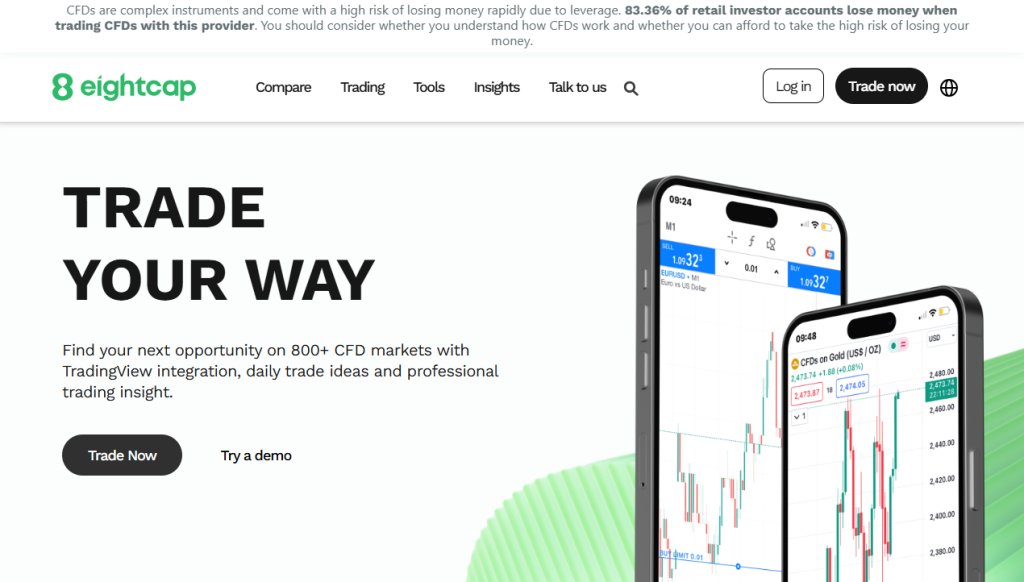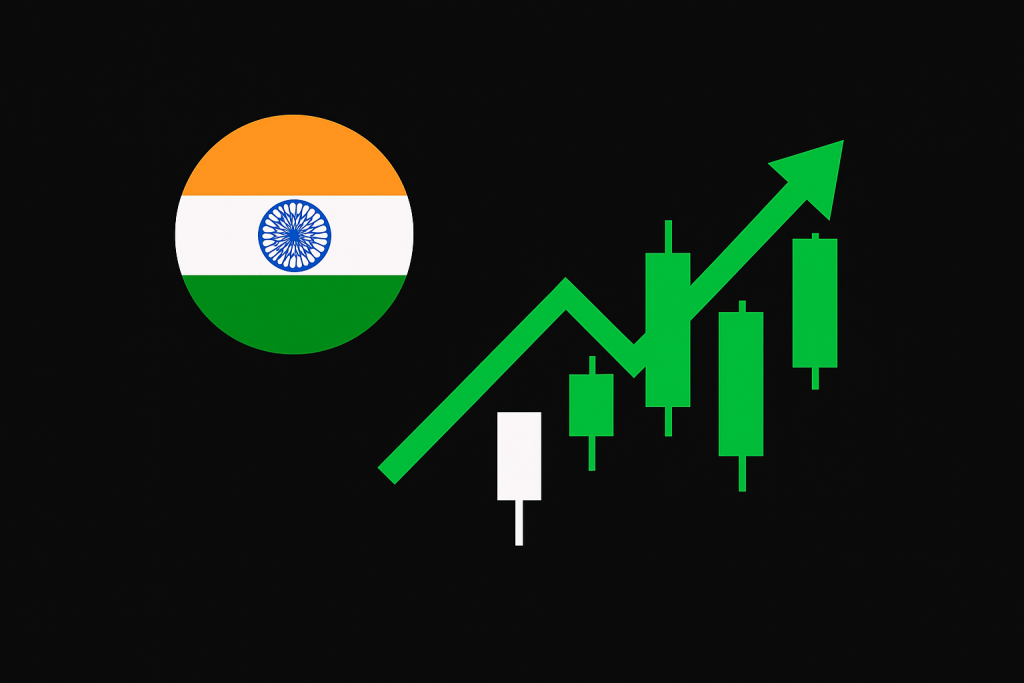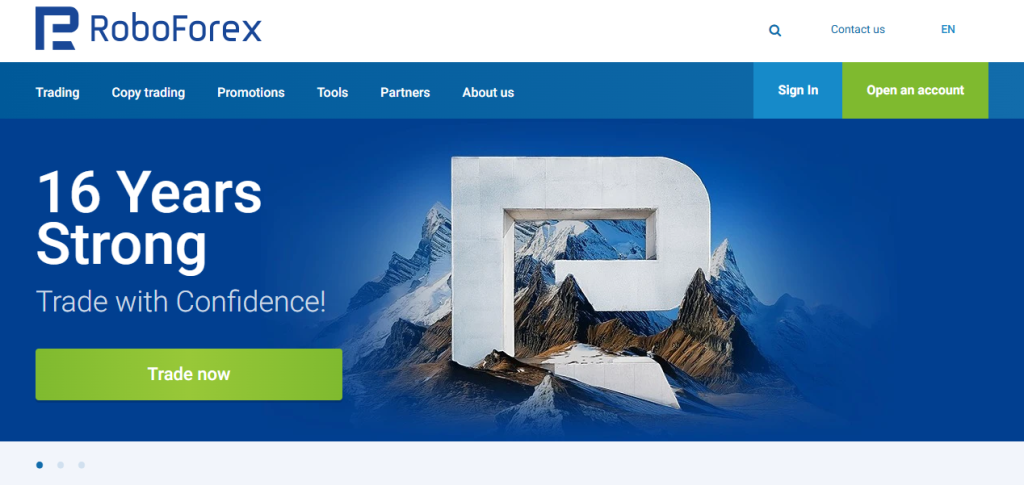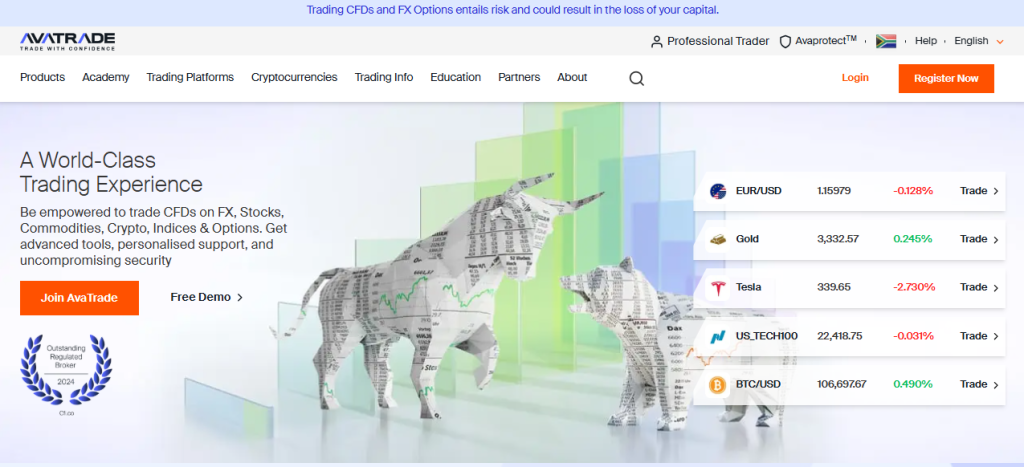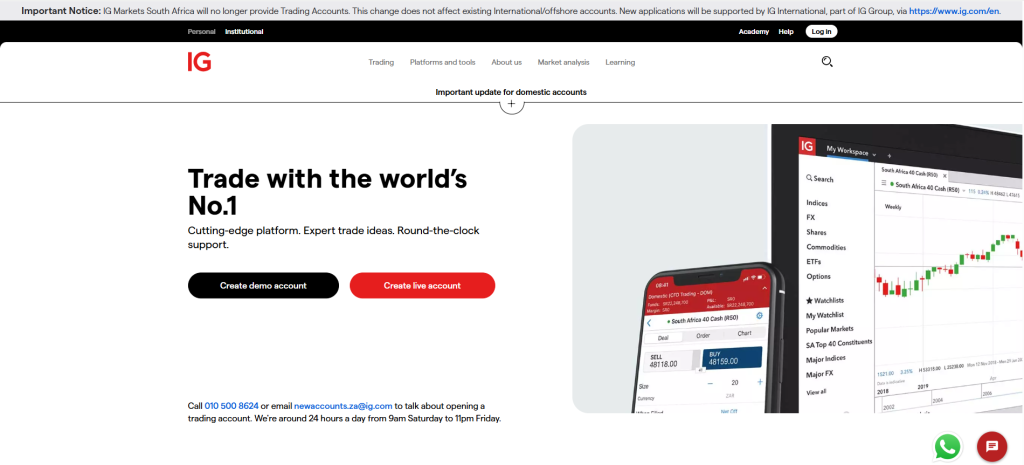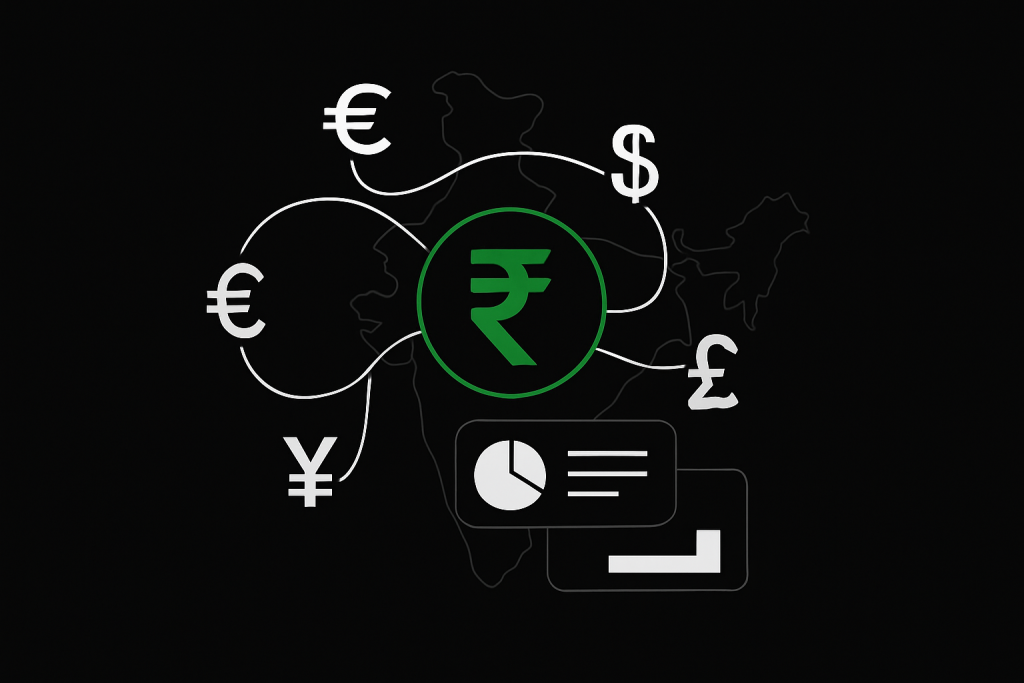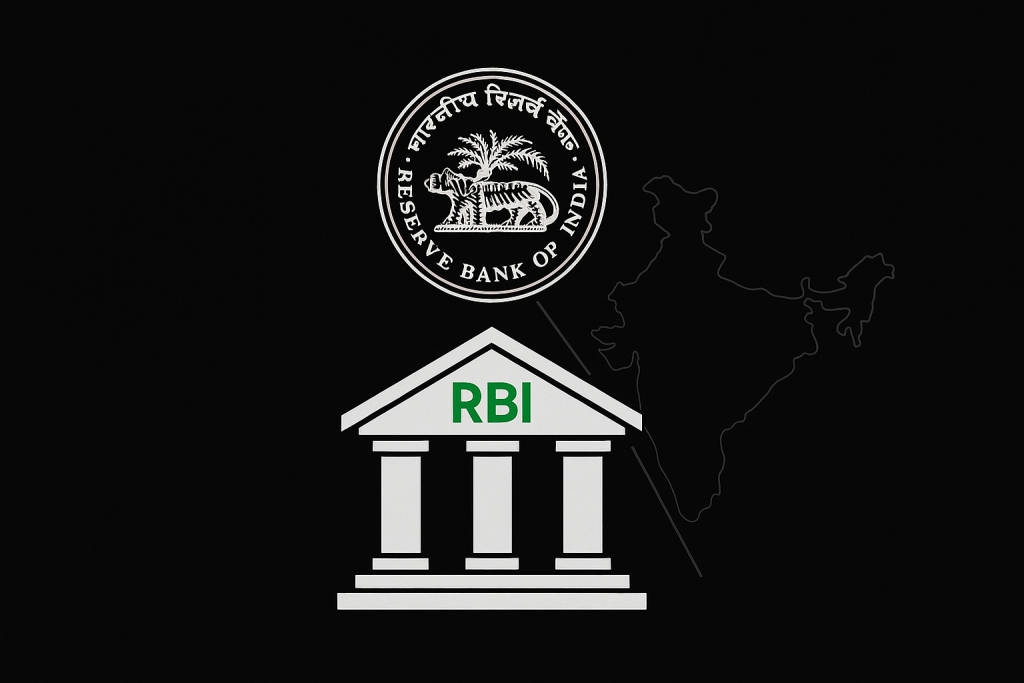
5 Best RBI Regulated Forex Brokers – Rated and Reviewed. Discover the best RBI-authorized forex brokers for Indian traders. We’ve carefully selected and reviewed the top platforms that fully comply with Indian regulations and offer secure, reliable trading environments.
5 Best RBI Regulated Forex Brokers – Who Leads the Pack
5 Best Forex Brokers in India (2025)
- Eightcap – RBI authorised with INR account support.
- XM – Offers INR deposit options and localized India-based promotions.
- RoboForex – Multiple Trading platforms and Localized support for Indian Traders.
- AvaTrade – AvaTradeGO app with built-in market analysis tools.
- IG – Accepts Indian residents through its global entity.
Top 10 Forex Brokers (Globally)
Eightcap
EightCap accepts Indian clients under offshore licenses (ASIC, FCA, CySEC, SCB) but does not hold regulation from India’s RBI or SEBI. It offers INR accounts, supports MT4/MT5/TradingView, and requires a minimum deposit of $100 (~₹8,300) with up to 1:30 leverage for Indian residents.
| Minimum Deposit: $100 Regulated by: ASIC, FCA, CySEC, SCB Crypto: Yes | |
Frequently Asked Questions
Is EightCap regulated by the RBI or SEBI?
No, it holds licenses from ASIC, FCA, CySEC, and the Bahamas (SCB), but it does not have any registration or oversight from India’s RBI or SEBI. Indian traders trade on the platform independently and accept the risk themselves.
Can Indian residents open accounts with EightCap?
Yes, EightCap accepts Indian clients, supports INR-denominated accounts, and integrates with MT4, MT5, and TradingView, with a minimum deposit of around ₹8,300 (~$100). However, clients trade under offshore regulation instead of Indian law.

| Minimum Deposit: $100 Regulated by: ASIC, FCA, CySEC, SCB Crypto: Yes | |
Pros and Cons
Our Insights
EightCap remains accessible but unregulated locally; it welcomes Indian traders, offering global platforms and INR accounts under offshore regulation. However, users trade without RBI/SEBI protection and accept full responsibility for legal, compliance, and banking risks in CFD trading.
XM
XM does not hold regulation from India’s RBI or SEBI, but it accepts Indian traders under offshore licenses like CySEC, ASIC, and IFSC. Indian users can deposit INR via cards, bank transfers, and e-wallets, but trading global forex pairs may conflict with local regulations.
| Minimum Deposit: $5 Regulated by: FSC Crypto: Yes | |
Frequently Asked Questions
Is XM regulated by the RBI or SEBI?
No, XM operates under international licenses from CySEC, ASIC, and IFSC but lacks authorization from India’s RBI or SEBI. Indian traders who use XM trade without domestic regulatory protection and accept the potential legal risks involved.
Can Indian residents trade with XM?
Yes, XM allows Indian residents to open accounts, fund them with INR, and access MT4/MT5 platforms. However, trading non-INR forex pairs and CFDs may breach FEMA regulations, placing users in a legal grey area under Indian law.

| Minimum Deposit: $5 Regulated by: FSC Crypto: Yes | |
Pros and Cons
| ✓ Pros | ✕ Cons |
| Regulation | CySEC
ASIC
IFSC |
| Indian Access | INR deposits via bank
transfers, cards, and e
wallets |
| Platforms/Accounts | MT4/MT5
multiple account types
$5 minimum deposit |
| Spreads/Instruments | Tight spreads from 0.6
pips, 55+ currency
pairs, CFDs,
commodities |
Our Insights
XM welcomes Indian traders and provides user-friendly platforms, local funding methods, and a low-cost entry. However, its lack of RBI/SEBI regulation and potential FEMA breaches mean traders operate without local legal safeguards or clear dispute resolution options.
Top 3 (RBI) Forex Brokers in India – Compared

RoboForex
RoboForex does not hold regulation from India’s RBI or SEBI but accepts Indian clients under offshore licensing from Belize’s Financial Services Commission (FSC). It offers a low $10 minimum deposit, access to over 12,000 instruments, support for INR deposits, plus civil liability insurance and client compensation coverage.
| Minimum Deposit: $10 Regulated by: FSC Crypto: Yes | |
Frequently Asked Questions
Is RoboForex regulated by the RBI or SEBI?
No. RoboForex holds a license from the Belize Financial Services Commission (FSC) and is a member of the Financial Commission, but it does not have regulatory approval from India’s RBI or SEBI. Indian traders use the platform at their own risk under Indian law.
Can Indian traders legally use RoboForex?
Yes, Indian traders can register, deposit in INR, and trade through RoboForex. However, since it is not RBI-regulated, using the platform for forex or CFD trading may conflict with FEMA regulations, and banking-related issues or legal uncertainties may arise.

| Minimum Deposit: $10 Regulated by: FSC Crypto: Yes | |
Pros and Cons
Our Insights
RoboForex provides global access, flexible accounts, and INR deposit options, but it lacks local regulatory backing. Indian traders seeking high leverage and diverse instruments may be drawn in, but the absence of RBI or SEBI regulation makes it a legally risky choice.
AvaTrade
AvaTrade is not regulated by the Reserve Bank of India (RBI) or SEBI, but it accepts Indian traders under its international licenses. The broker supports INR deposits, offers MetaTrader platforms, and provides fixed spreads, yet operates outside the Indian regulatory framework.
| Minimum Deposit: $100 Regulated by: CBI, BVI, FSC, ASIC, FSCA, JFSA, FFAJ Crypto: Yes | |
Frequently Asked Questions
Is AvaTrade regulated by the Reserve Bank of India (RBI)?
No, AvaTrade is not regulated by the RBI. It operates under licenses from global regulatory bodies like ASIC, FSCA, and CySEC. Indian users should note that using an unregulated broker in India involves legal and financial risk.
Can Indian residents legally open an account with AvaTrade?
Yes, Indian residents can register and trade with AvaTrade. However, as it is not RBI-regulated, traders must exercise caution and understand that they are trading at their own risk under foreign regulatory protection.

| Minimum Deposit: $100 Regulated by: CBI, BVI, FSC, ASIC, FSCA, JFSA, FFAJ Crypto: Yes | |
Pros and Cons
Our Insights
AvaTrade operates as a strong international broker, but it doesn’t fall under RBI oversight. Indian traders can access its services, but they should fully understand the regulatory limitations and ensure they comply with local financial laws before investing.
IG
IG is recognised as a top-tier global broker, yet the RBI or SEBI does not regulate it. However, IG does accept Indian clients via offshore entities, offering access to advanced markets and platforms, though trading non-INR forex pairs carries regulatory risk under FEMA.
| Minimum Deposit: $250 Regulated by: FCA, ASIC, CFTC, NFA, BaFin Crypto: Yes | |
Frequently Asked Questions
Is IG regulated by the RBI or SEBI?
No. IG operates under top-tier global regulators, including the FCA, ASIC, CFTC, and others. It lacks SEBI or RBI approval, meaning Indian traders use offshore subsidiaries, not domestic accounts.
Can Indian traders open accounts with IG?
Yes. IG accepts Indian clients through offshore branches. They allow INR deposits and a variety of platforms, including MT4. Still, trading non-INR forex pairs may breach Indian forex regulations.

| Minimum Deposit: $250 Regulated by: FCA, ASIC, CFTC, NFA, BaFin Crypto: Yes | |
Pros and Cons
Our Insights
Serious and well-informed Indian traders choose IG as a global heavyweight in trading. However, using IG means managing an offshore account and facing possible regulatory conflicts. For full legal compliance, Indian traders should consider SEBI-registered brokers for INR forex trading.
What Real Traders Want to Know!
Q: Is forex trading legal in India for retail traders? – Rajesh, Mumbai
A: Yes, forex trading is legal in India, but only through currency pairs approved by the Reserve Bank of India (RBI) and traded on recognized exchanges like NSE, BSE, and MCX-SX. Trading unregulated international pairs through
offshore brokers is not legally permitted.
Q: Can I use international brokers like AvaTrade from India? – Priya, Delhi
A: While many Indian residents do use international brokers, these platforms are not regulated by the RBI. Trading with them may violate Indian foreign exchange laws, and users do so at their own risk without local legal protection.
Q: What currency pairs am I allowed to trade legally in India? – Aman, Bengaluru
A: In India, legal forex trading is restricted to four currency pairs involving the Indian Rupee: USD/INR, EUR/INR, GBP/INR, and JPY/INR. These must be traded through SEBI-regulated Indian exchanges.
Q: What is the safest way to start forex trading in India? – Vikram, Hyderabad
A: The safest way is to open an account with a SEBI-regulated broker and trade only RBI-approved currency pairs. Beginners should also start with a
demo account to understand market dynamics before committing real funds.

What is the RBI in India?
The RBI, or Reserve Bank of India, is the central bank of India. It was established in 1935 and is responsible for regulating the country’s monetary and financial system.
Key Functions of the RBI:
- Monetary Policy: Controls inflation and ensures economic stability by managing interest rates and money supply.
- Currency Issuance: Sole authority to issue Indian currency notes (except coins, which are minted by the government).
- Banking Regulation: Supervises and regulates commercial banks and non-banking financial companies (NBFCs).
- Foreign Exchange Management: Regulates forex markets and maintains the country’s foreign exchange reserves.
- Government’s Banker: Manages the central and state governments’ accounts and public debt.
In simple terms, the RBI keeps India’s financial system stable and running smoothly.

Pros and Cons
You might also like:
In Conclusion
Forex traders in India ensure legal compliance, investor protection, and transparency by choosing RBI-regulated brokers. Although they can trade only select currency pairs, they enjoy a safer environment that gives beginners and professionals peace of mind while accessing the global currency market within the country’s legal framework.







